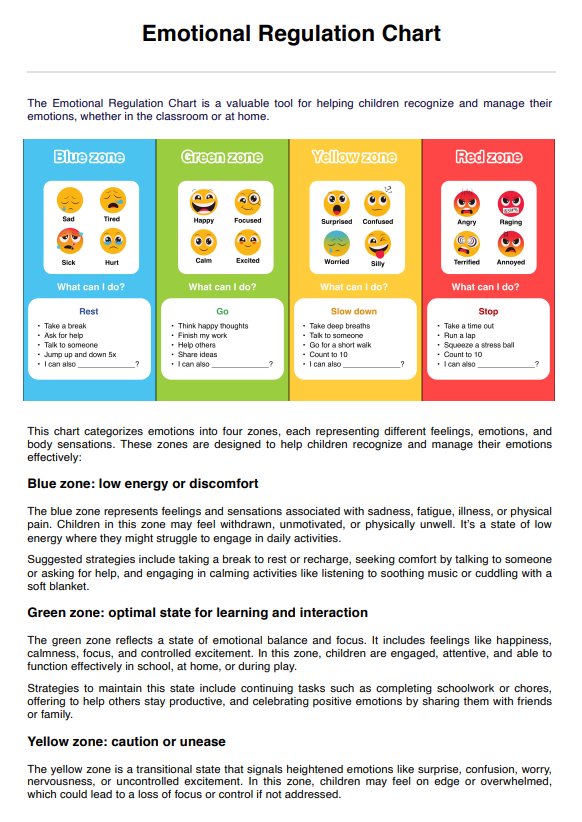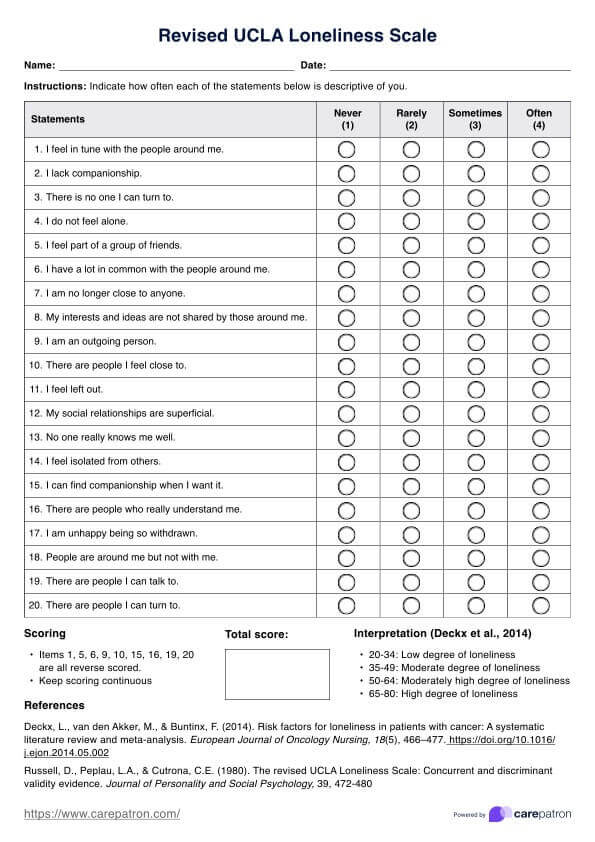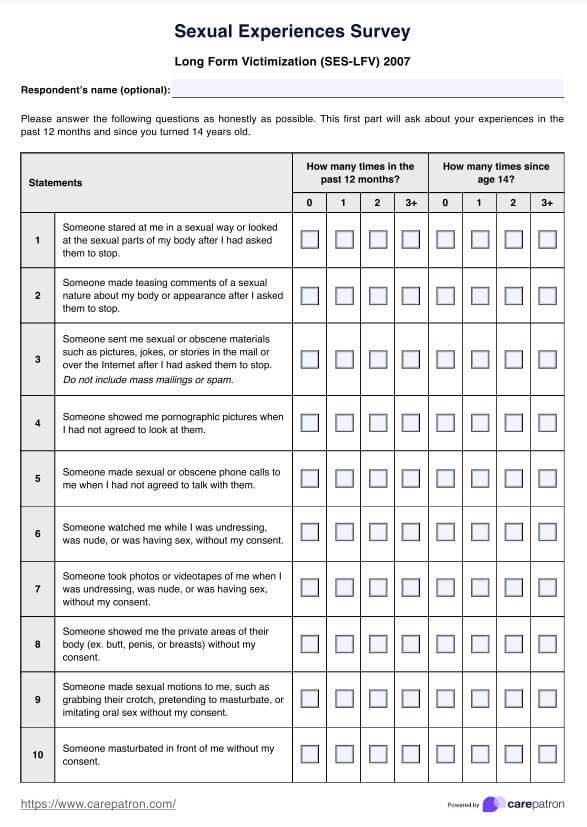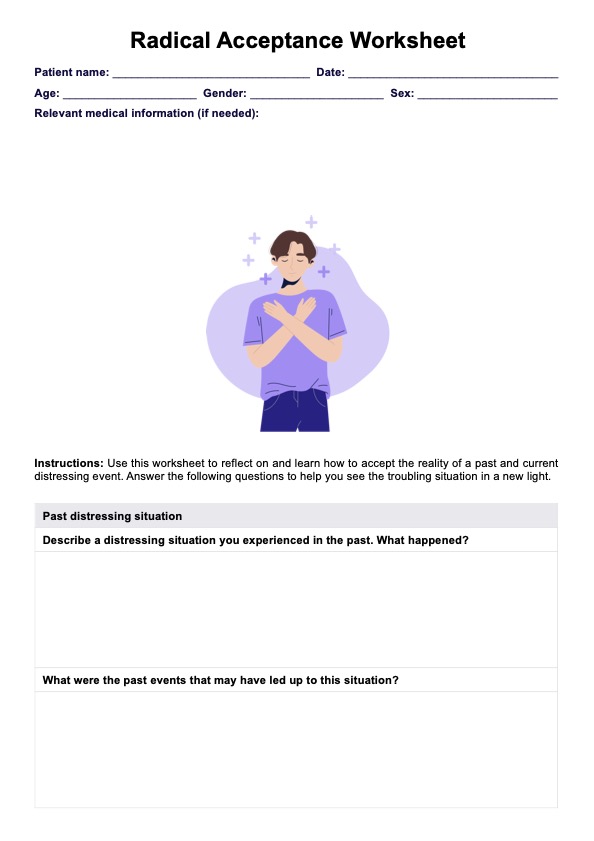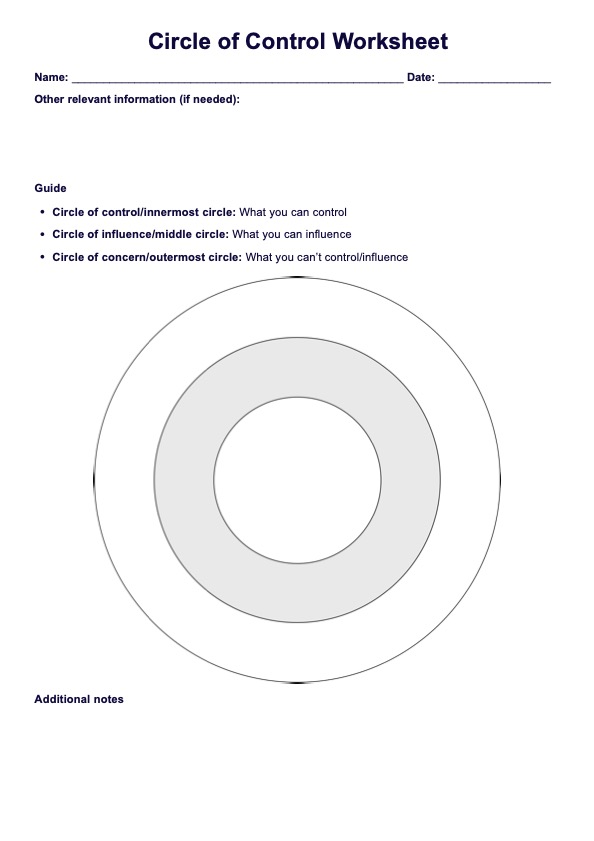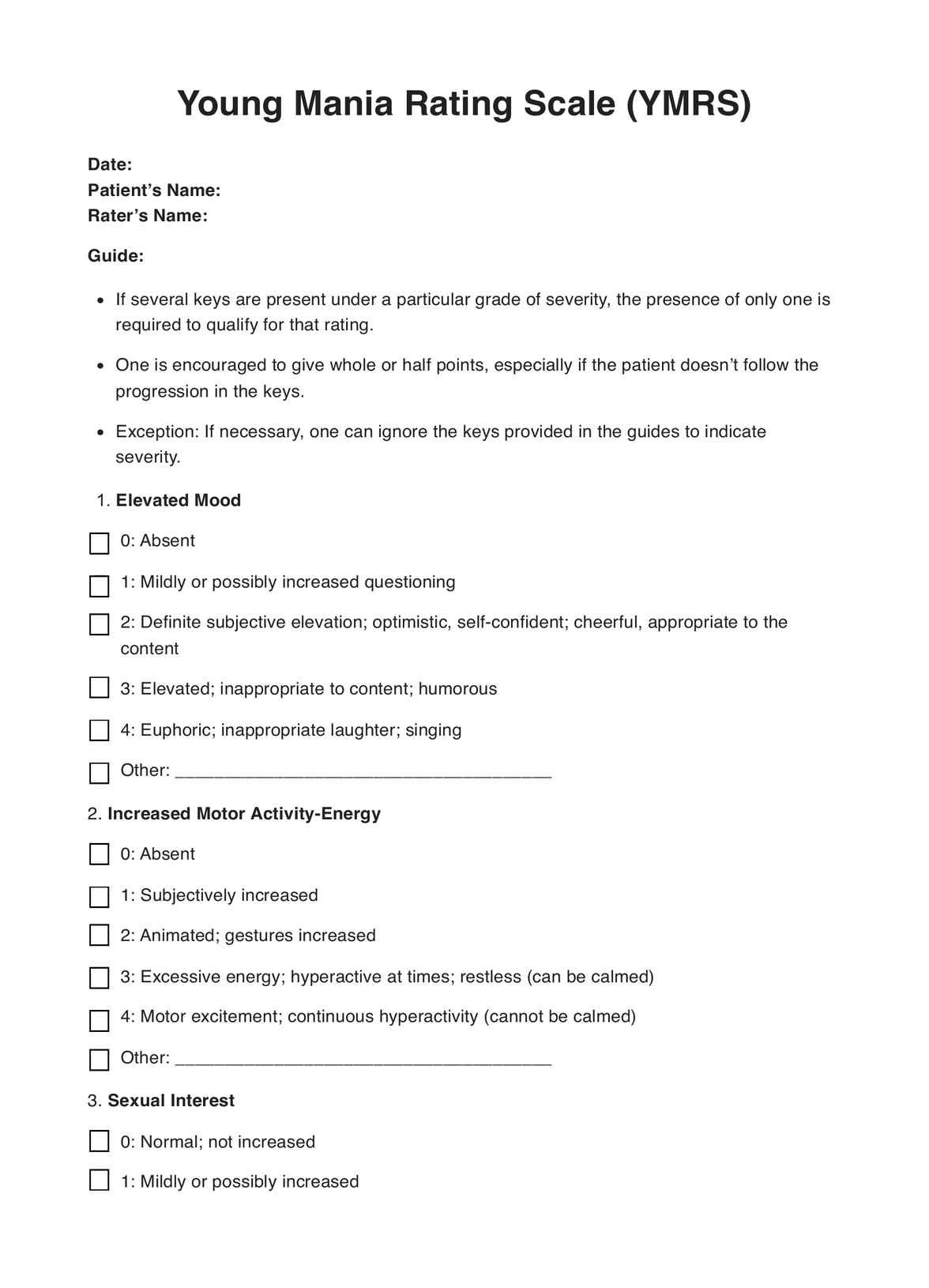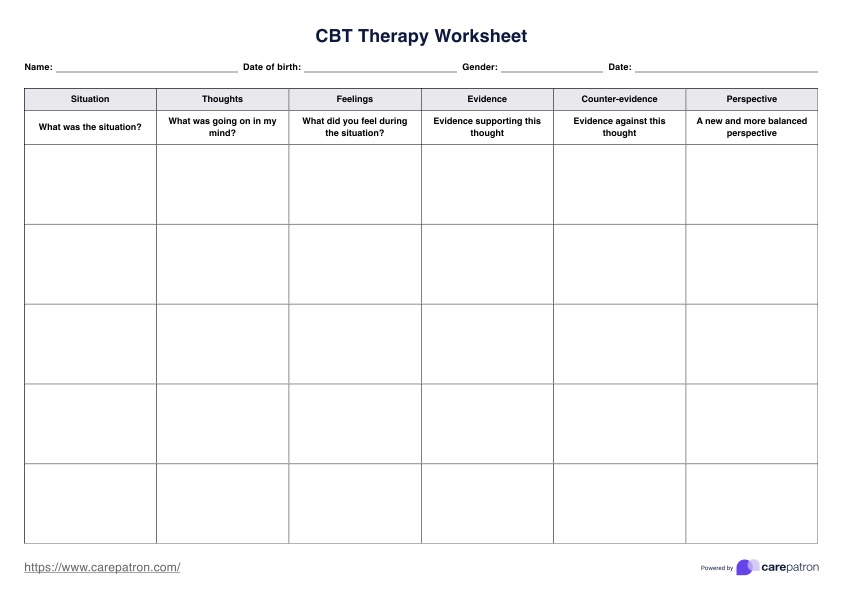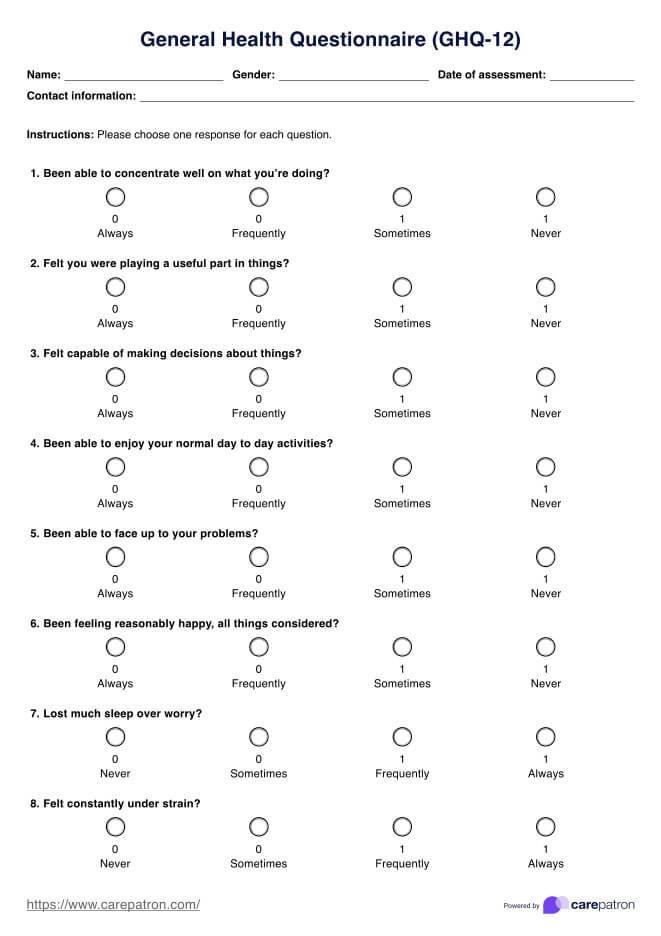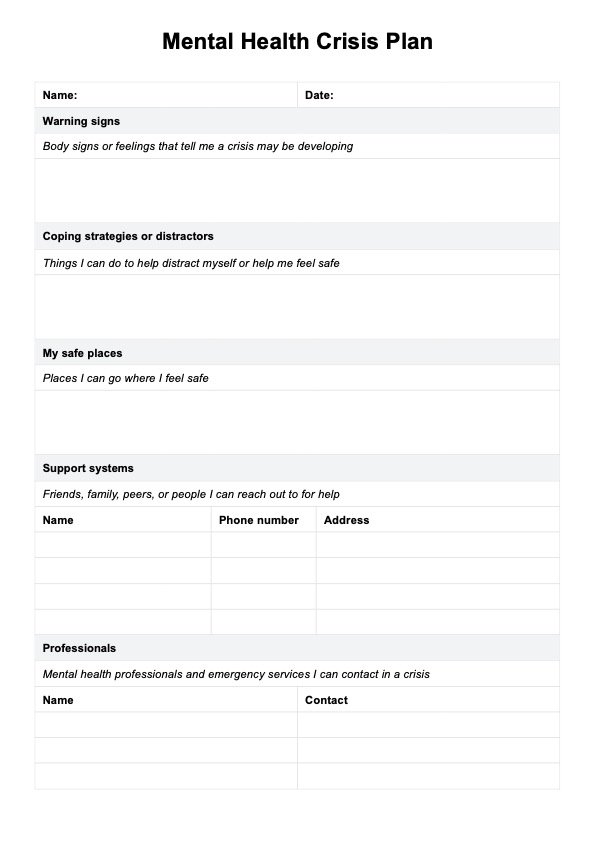Stories My Friends Told Me PTSD Worksheet
Manage PTSD with Stories My Friends Told Me Worksheet—effective healthcare tool for coping and healing. Get started now.


What Is Trauma and PTSD?
In psychological terms, trauma is a distressing or disturbing experience that overwhelms an individual's coping ability. It can result from various events, such as accidents, violence, abuse, natural disasters, or witnessing a traumatic event. Traumatic experiences can profoundly impact a person's mental and emotional well-being, often leading to a condition known as
PTSD is a mental health disorder that can develop following exposure to a traumatic event. Symptoms of PTSD can include flashbacks, nightmares, severe anxiety, and intrusive thoughts related to the trauma. Individuals with PTSD may also experience heightened emotional reactivity, avoidance of trauma reminders, and difficulty concentrating. These symptoms can significantly impair a person's daily life, relationships, and overall functioning.
When friends tell stories to someone with PTSD, it can have positive and negative effects. On the one hand, sharing stories of resilience and recovery from trauma can provide hope and inspiration. Knowing that others have overcome similar challenges can reassure individuals with PTSD and may motivate them to seek help and support.
On the other hand, hearing stories of trauma can also trigger distressing emotions and memories for someone with PTSD. Friends must approach these conversations with sensitivity and empathy, respecting the individual's boundaries and emotional state. Encouraging them to seek professional help and offering a listening ear can be more beneficial than forcing them to confront their trauma through stories.
In conclusion, trauma is a distressing event that can lead to the development of PTSD, a debilitating mental health condition. While stories shared by friends can offer support and hope, they should be approached with care, as they can also trigger distressing emotions. Seeking professional help and providing a supportive presence are vital in helping individuals with PTSD on their journey to recovery.
Stories My Friends Told Me PTSD Worksheet Template
Stories My Friends Told Me PTSD Worksheet Example
How To Use the Stories My Friends Told Me PTSD Worksheet
The Stories My Friends Told Me PTSD Worksheet is a valuable tool designed to assist individuals in managing and coping with Post-Traumatic Stress Disorder (PTSD). This worksheet provides a structured approach to processing and understanding the stories and experiences of friends and loved ones who have offered support and shared their encounters with trauma. By engaging with this worksheet, individuals with PTSD can harness the power of shared narratives to facilitate their healing journey.
Here are the steps involved in effectively using the Stories My Friends Told Me PTSD Worksheet:
Introduction
Begin by familiarizing yourself with the worksheet and its purpose. Understand that it aims to help you connect with the experiences of your friends and how those stories can contribute to your healing.
Reflect on Friendship
Take some time to think about the friends who have been supportive and have shared their own stories related to trauma. Identify the individuals whose stories resonate with you or have been particularly meaningful in your journey.
Select Relevant Stories
Choose specific stories or anecdotes from your friends that have positively impacted your outlook or coping mechanisms. These stories should offer inspiration, hope, or insights into overcoming adversity.
Analyze and Connect
For each selected story, analyze it in detail. Reflect on the emotions, lessons, or strategies it conveys. How does it relate to your own experiences with trauma and PTSD? Identify any parallels or guidance that can be drawn from these narratives.
Journaling
Use the worksheet to document your reflections. Write down the key points from each story and how they apply to your situation. Journaling allows you to process your thoughts and emotions, making the insights gained more tangible.
Action Plan
Based on the stories and reflections, create an action plan for yourself. What steps or changes can you implement to incorporate the wisdom and resilience from these stories? Set achievable goals and milestones.
Seek Support
Share your findings and action plan with a therapist, counselor, or support group. Professional guidance is crucial in managing PTSD effectively, and it can help you implement your action plan and provide further assistance.
By using the Stories My Friends Told Me PTSD Worksheet, individuals can harness the strength and wisdom of their social support network to aid in their healing journey. It transforms personal narratives into actionable insights and strategies, empowering those with PTSD to navigate their path to recovery better.
Using this PTSD worksheet template can and action plan template improve your practice and client success. It supports better communication and understanding of PTSD symptoms.
When Would You Use This Stories My Friends Told Me PTSD Worksheet?
The Stories My Friends Told Me PTSD Worksheet is a valuable resource used at various stages of an individual's journey in coping with Post-Traumatic Stress Disorder (PTSD). Here are the most appropriate times to use this worksheet:
Early Diagnosis and Treatment
When a person is initially diagnosed with PTSD, mental health professionals, such as therapists and counselors, can employ this worksheet as a complementary tool. It helps individuals begin their healing process by integrating the experiences of friends and loved ones who have faced similar challenges, providing an immediate source of support.
During Therapy or Counseling
Mental health professionals can incorporate this worksheet into therapy sessions to facilitate discussions and reflections. By analyzing and connecting with stories shared by friends, patients can gain deeper insights and explore coping strategies within a therapeutic context.
Support Group Meetings
Support groups for individuals with PTSD can use this worksheet to foster peer interactions and discussions. Participants can share and reflect upon the stories of their friends, creating a sense of community and empathy while offering different perspectives on healing.
Periods of Emotional Distress
When individuals with PTSD experience heightened emotional distress or triggering events, the worksheet can be revisited as a self-help tool. It allows them to draw strength and inspiration from the narratives of their friends, reinforcing their resilience.
Recovery and Maintenance
Even during the recovery and maintenance phase of PTSD, this worksheet can be revisited periodically. It serves as a reminder of the support network available and provides ongoing inspiration for continued growth and healing.
In healthcare settings, mental health professionals, therapists, counselors, and support group facilitators can use the Stories My Friends Told Me PTSD Worksheet to empower their patients and clients. It fosters a sense of connection, hope, and purpose by utilizing the experiences and resilience of friends' healing.
What are the Benefits of Using This Stories My Friends Told Me PTSD Worksheet?
Utilizing the free Stories My Friends Told Me PTSD Worksheet could offer several significant benefits for individuals struggling with Post-Traumatic Stress Disorder (PTSD):
Emotional Support
This worksheet provides a structured way to tap into the emotional support of friends. It reminds individuals that they are not alone in their struggles, fostering a sense of community and connection.
Hope and Inspiration
Reading and reflecting on the stories of friends who have faced trauma can instill hope and inspiration. It demonstrates that recovery and resilience are possible, motivating individuals to persevere in their healing journey.
Enhanced Coping Strategies
By analyzing the narratives shared by friends, individuals can gain insights into various coping strategies that have worked for others. This can help expand their toolbox for managing PTSD symptoms.
Therapeutic Reflection
The worksheet encourages therapeutic reflection, making it a valuable tool for therapy or counseling sessions. It promotes meaningful discussions and insights within a therapeutic context.
Customized Healing
Users can select and focus on stories that resonate most with their experiences, tailoring the healing process to their unique needs and preferences.
Long-Term Support
This worksheet can be revisited as needed, providing ongoing support and motivation during different phases of PTSD recovery. It serves as a lasting resource in an individual's journey toward healing.
Commonly asked questions
Individuals who have been diagnosed with PTSD or are struggling with trauma-related challenges can benefit from using this worksheet. It can also be helpful for therapists, counselors, and support group facilitators in their work with clients or patients.
The worksheet aims to provide emotional support, hope, and practical coping strategies by allowing individuals to engage with the stories and experiences of their friends who have faced trauma. It encourages reflection, connection, and healing.
The worksheet typically includes sections for selecting relevant stories, analyzing their emotional and practical insights, journaling reflections, and creating an action plan based on the shared narratives. Users can follow the provided steps to engage with it effectively.


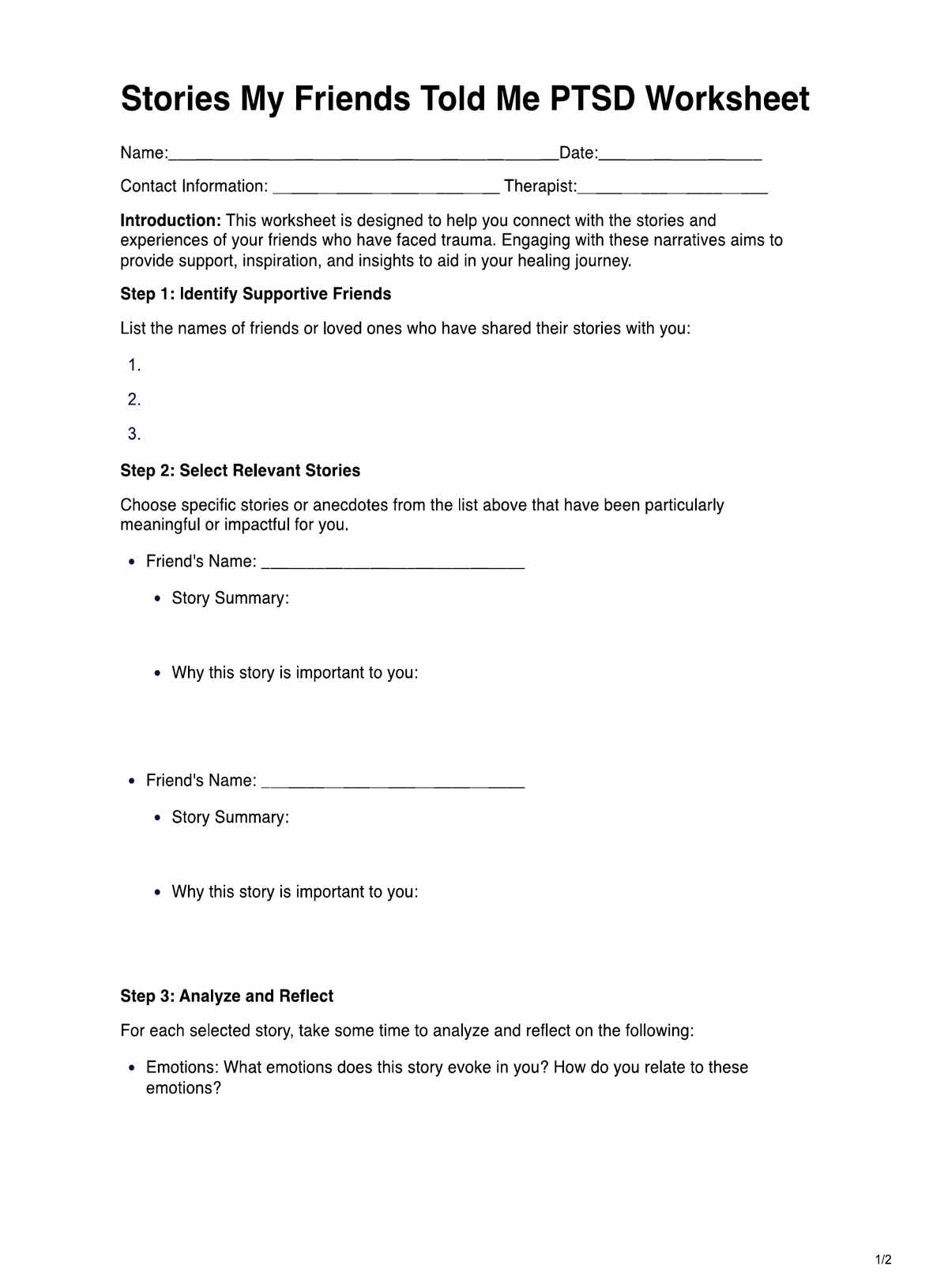
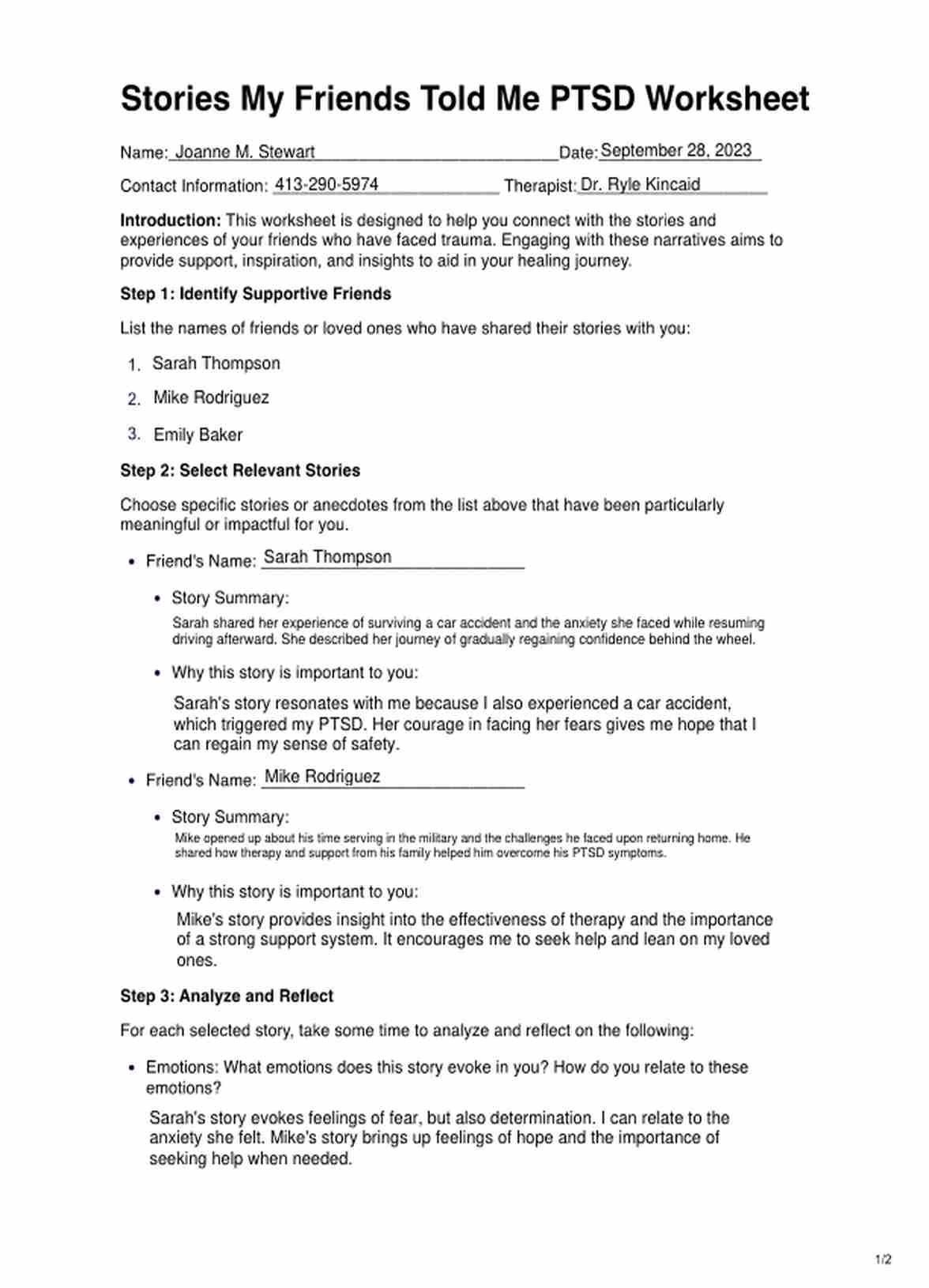









-template.jpg)






